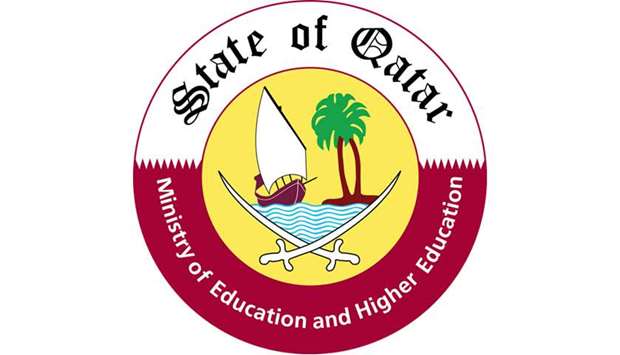Absence of students from school will not be counted in the first two weeks after the reopening, a senior official has said.
Addressing a press conference yesterday, Ministry of Education and Higher Education undersecretary Dr Ibrahim bin Saleh al-Nuaimi said the decision was taken after taking into consideration the concerns of some parents and their circumstances.
“Student attendance at 30% during the opening of the school year on Tuesday is appropriate,” he said. “We did not discover any case of infection among students in the second-round exams that ended on Monday, and there is a great readiness among public and private schools to receive students and take all necessary precautions.”
The blended learning system will be of a high quality, but at the same time attendance in school classrooms is necessary for the benefit of students, he said, stressing that they are keen to start the new school year from Tuesday with reduced number of students.
Remote learning will be of high quality and it has been tested before but the attendance of students in school classrooms is necessary and good for the educational growth of students.
The MoEHE has taken all necessary steps to ensure quality education, opening new schools, introducing new special programmes and hiring qualified teachers.
Such efforts cover both public and private schools as well as higher education institutions.
This year, there are more than 400,000 students and employees, including teaching and administrative staff, in schools and universities, he noted, adding that the necessary measures are being taken to ensure their safety, and the MoEHE is closely co-operating with the Ministry of Public Health to avoid any potential spread of Covid-19.
The administrative authorities at schools must ensure that everyone on the school premises adhere to the preventive measures.
He also hoped that parents drop their children to school in their own vehicles and raise their awareness of the issue. “However, we have also taken all the precautionary measures to ensure the safety of school buses,” he said.
While at home, parents should help their children adequately access the online learning resources. If a parent sees that the child has high temperature, s/he should not be sent to school.
Meanwhile, there are isolation rooms in schools to handle such cases if the need arises.
“We will continue to review, assess and update our education plans, and will continue with the blended education process for the best of our students,” he added.
Dr al-Nuaimi said 13 schools and kindergartens have been added in the private education sector, accommodating about 7,000 students.
More than 340,000 students will attend public and private schools in the 2020/21 academic year. Five new public schools have been opened, bringing the total number of public schools and preschools to 283. Additionally, 145 classrooms will be added to existing public schools with a capacity of over 3,600 seats to accommodate 124,700 students.
Dr Abdullatif al-Khal, chair of the National Strategic Group on Covid-19 and head of the Infectious Diseases Division at Hamad Medical Corporation, said at the press conference that 98.5% of the school teachers and staff tested for Covid-19 were found negative.
Describing it as a promising result, he said it is important for children to go to school while abiding by the preventive and precautionary measures put in place.
“As we know, while children are not immune from catching Covid-19, they are extremely unlikely to experience severe symptoms of the virus and their safety is always our first priority,” Dr al-Khal continued.
“With a maximum of 30% of children in school each day, in addition to supporting preventive measures, we are confident that everything is in place to enable children to safely return to schools.”

Ministry of Education and Higher Education


